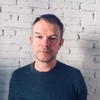
Like reading about drugs? Can Digital Drugs Get You High? | Interviews with People Who Just Smoked DMT | In Colombia, Lawmakers Debate Making Ecstasy Legal
Advertisement
In total, 750 people have made it to the International Harm Reduction Conference in an attempt to figure out how to reduce the damage being done to drug users by the world's governments' War On Drugs. For four days, the Radisson is a bubble of immunity for narcotics fans from Russia, Thailand, Vietnam, and other states whose citizens are beaten, slung in remote detention centers, and denied basic health care because of their drug habits.



Advertisement


Advertisement


Advertisement

Advertisement


